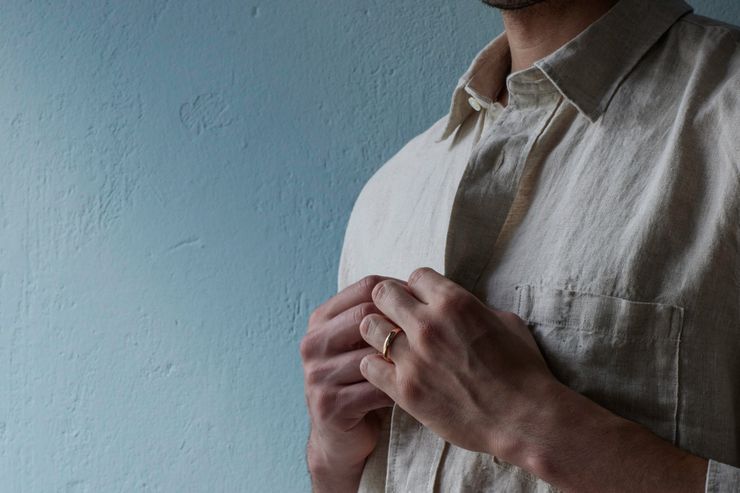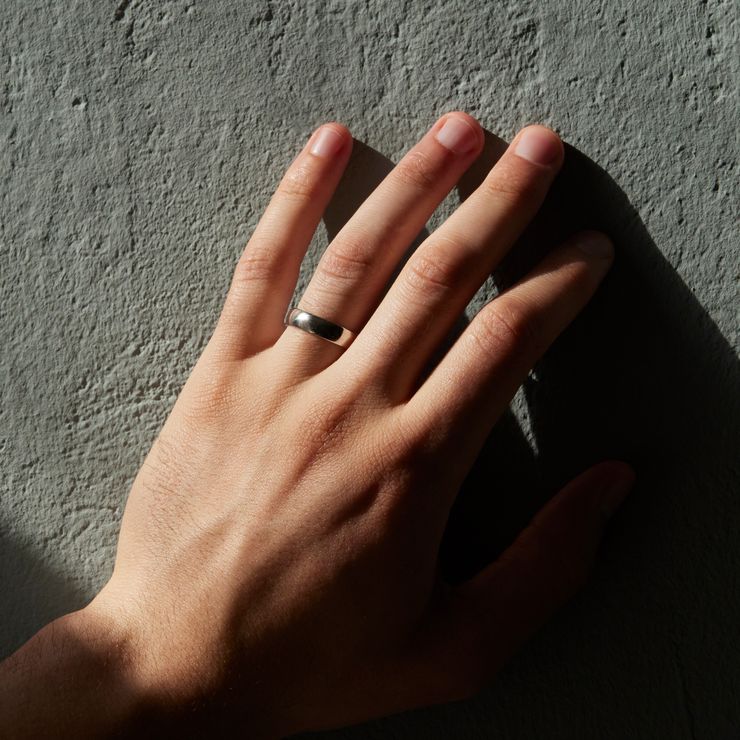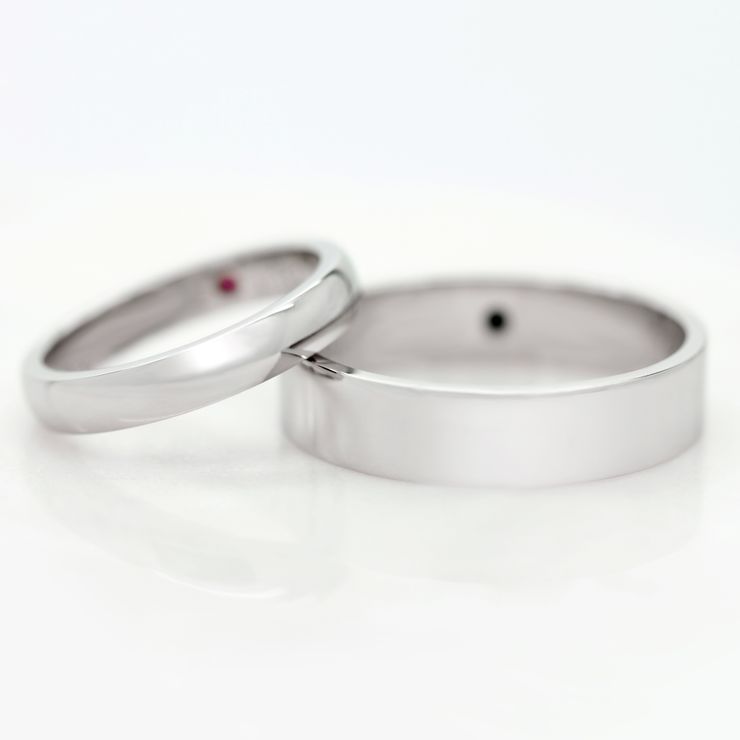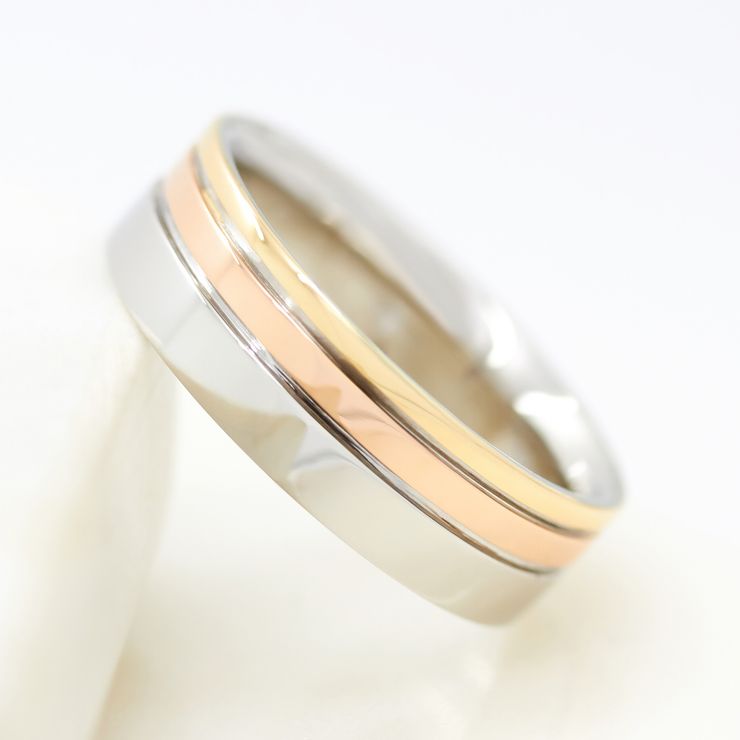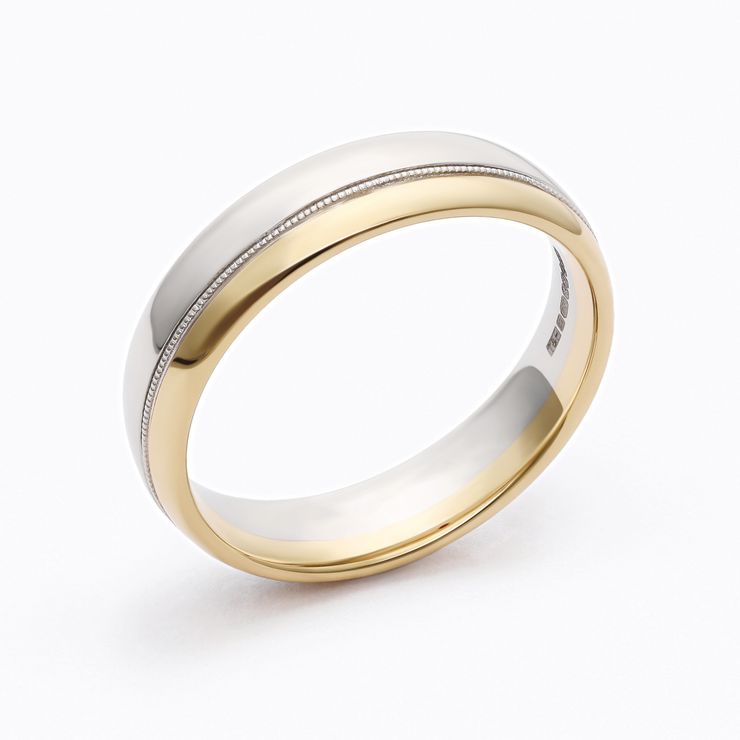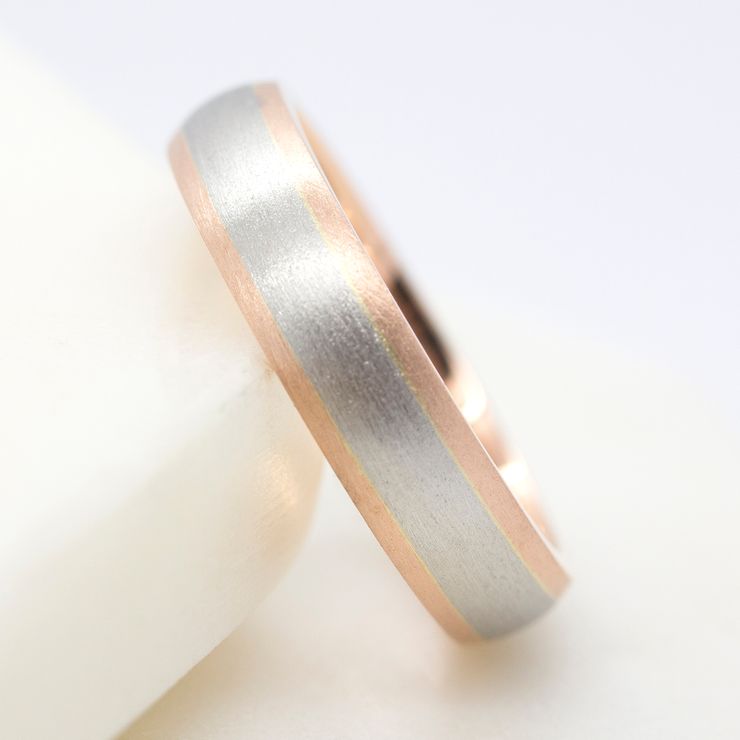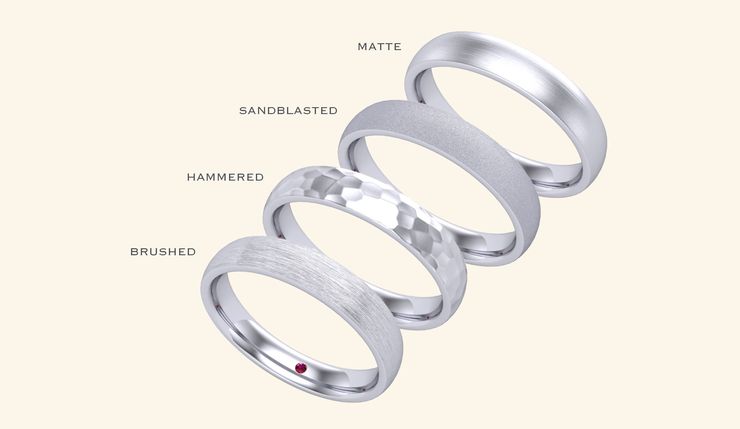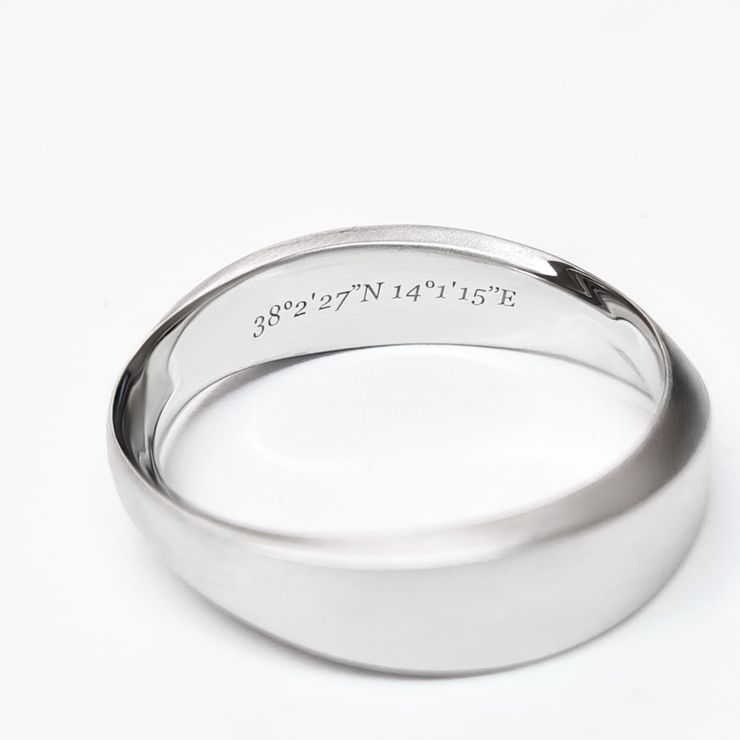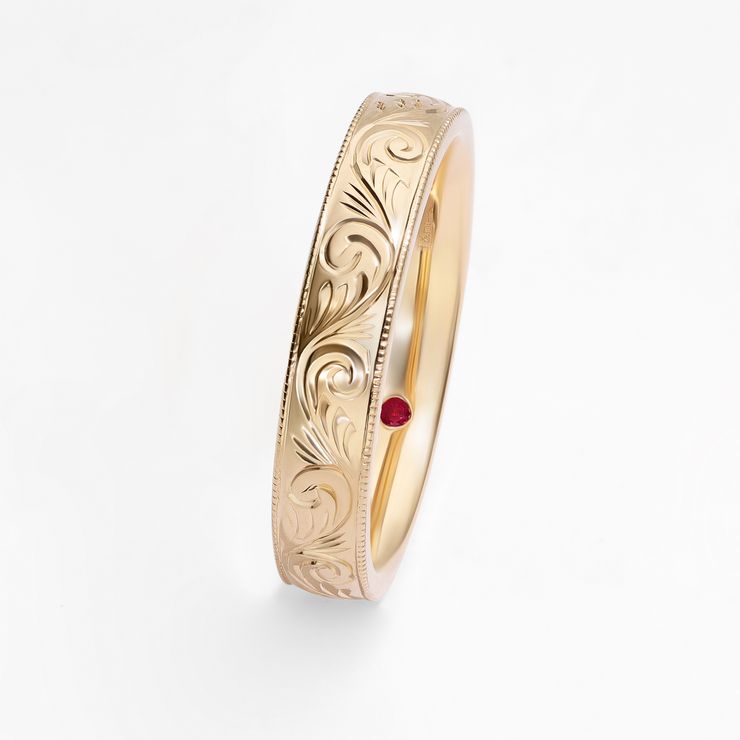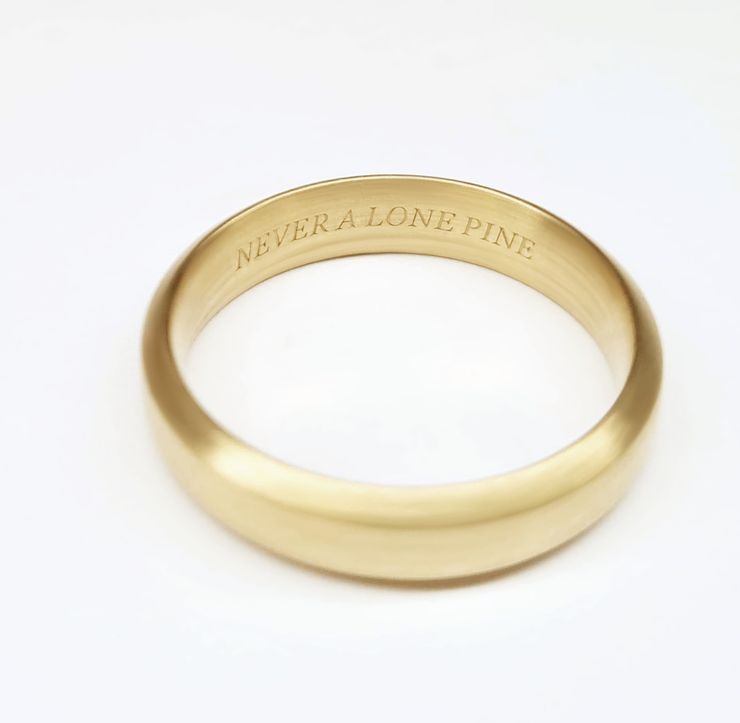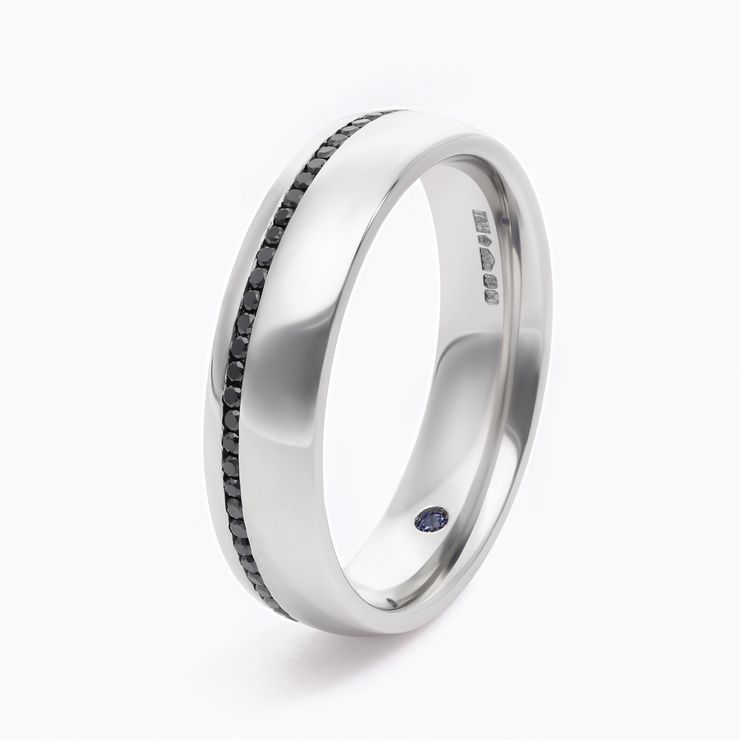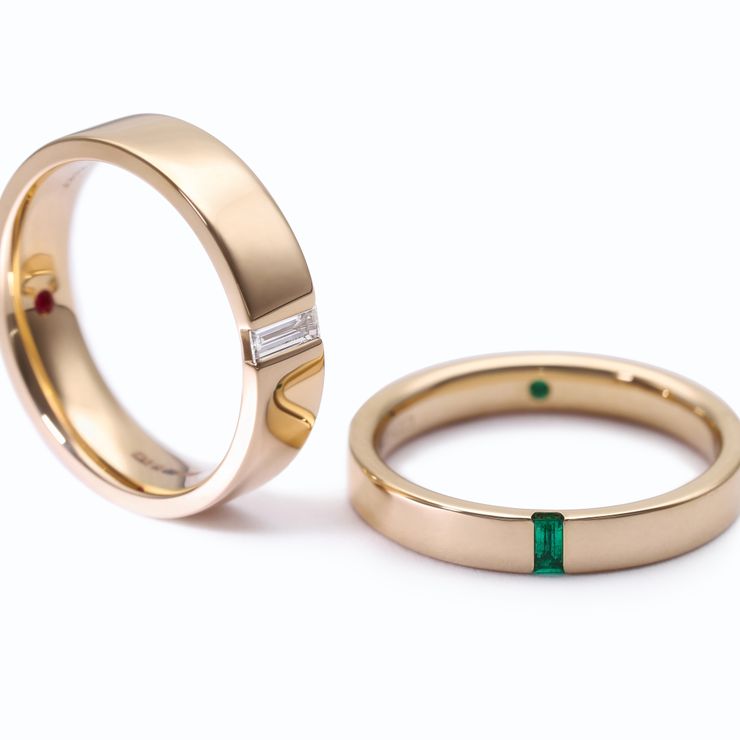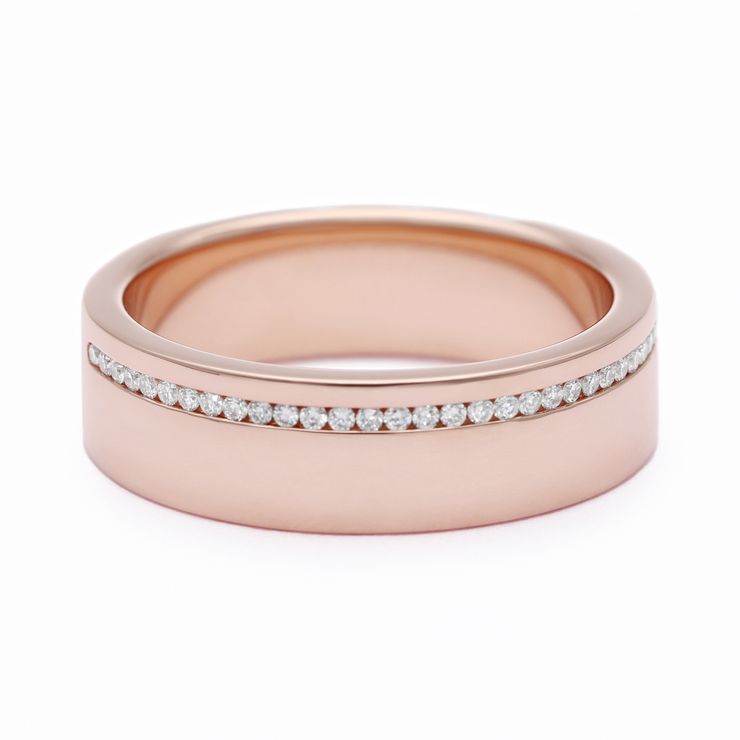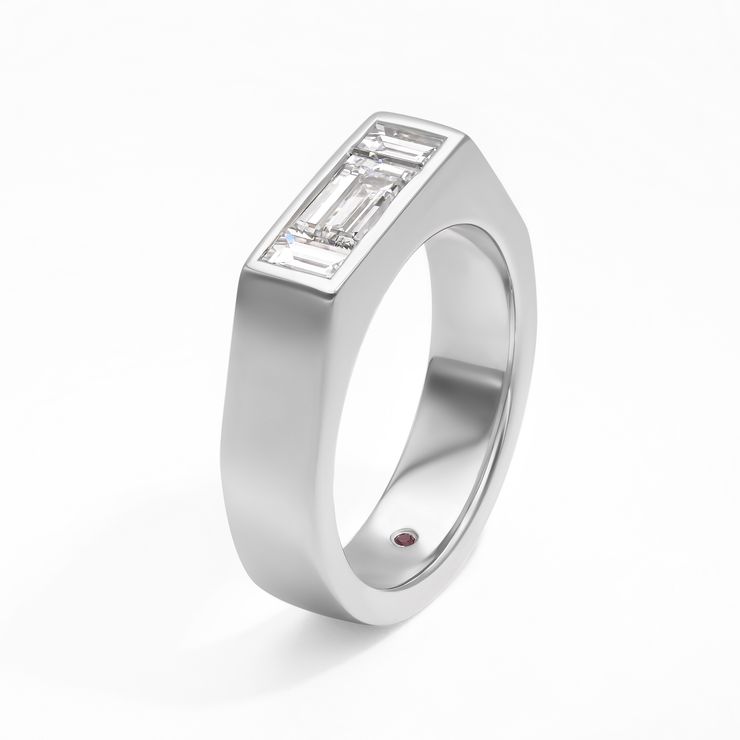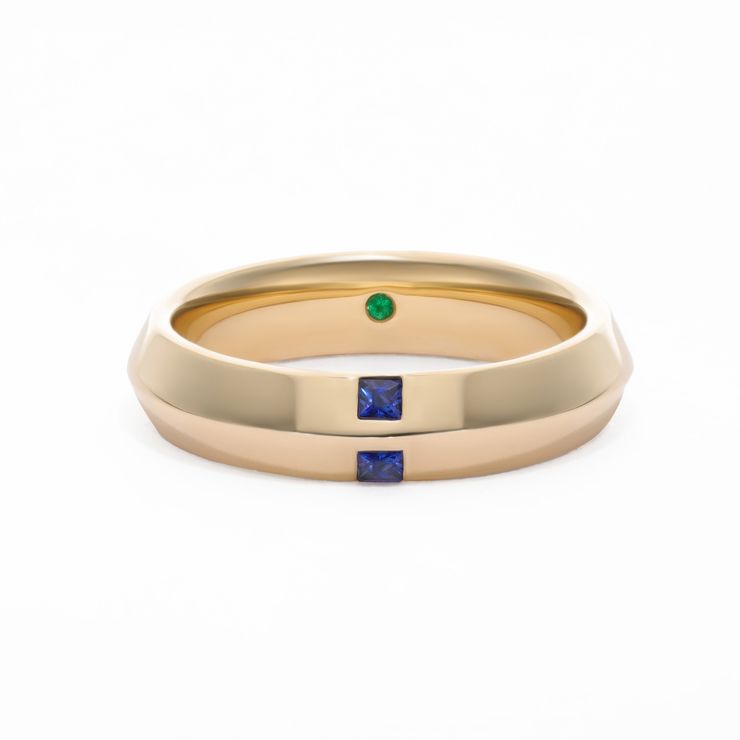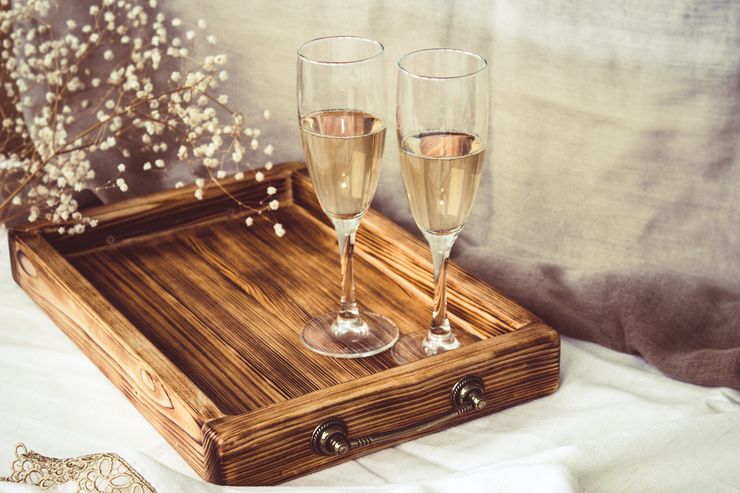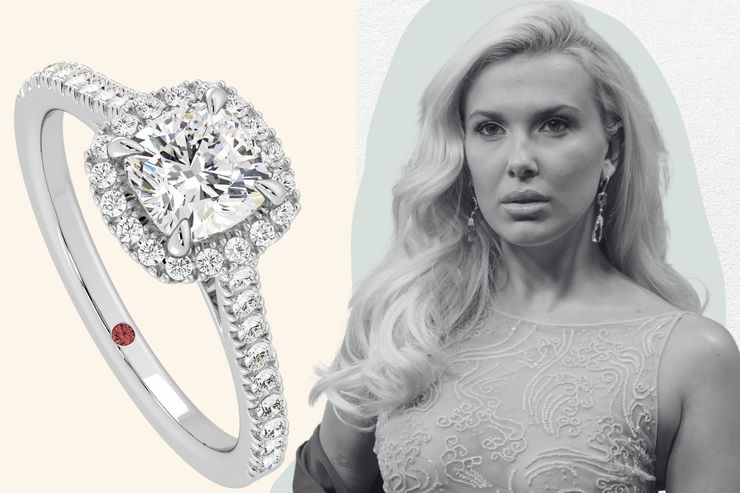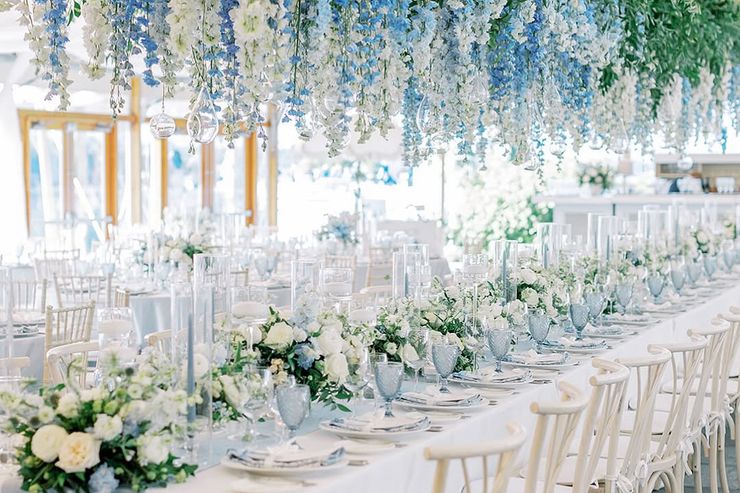When it comes to choosing a men’s ring, it’s important to consider lifestyle and taste. There’s been a tangible shift in men’s wedding ring trends in the past two decades. Gone are the days of grooms simply picking out a plain polished wedding band just days before the wedding ceremony.
Wedding ring styles for men have seen the classics updated with different textures, design accents and colours. However, it hasn’t stopped there. The goal post has moved into new territory on what’s possible to seal the deal on your special day!
So here’s what you can do…
Classic
Classic wedding bands have evolved over the past years to include different shape profiles when viewed in a cross section. For the most comfortable, court and D-shaped styles are the way forward. Flat and bevelled styles are clean and modern. For comfort with an edge, knife edge and concave styles take the prize.

